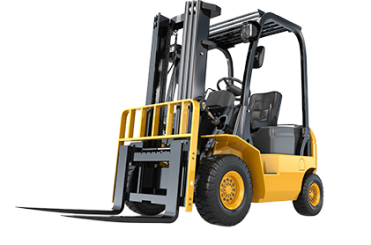Vital Tips for Managing Hefty Devices Rental Arrangements and Logistics Effectively
Efficiently managing heavy devices rental contracts and logistics is important for the success of any job that depends on these resources. A comprehensive understanding of rental terms, paired with specific assessment of equipment demands, lays the structure for beneficial settlements. Furthermore, collaborating transport logistics and preparing for continuous upkeep can significantly decrease unexpected costs and delays. The intricacies of these elements frequently existing challenges that require tactical foresight. What are the vital considerations that can change these possible challenges right into chances for efficiency and cost-saving?
Understand Rental Terms
Recognizing rental terms is crucial for successful heavy equipment monitoring. The rental period specifies the duration for which the tools is leased, influencing budgeting and project timelines.
Furthermore, it is important to comprehend the upkeep obligations described in the agreement. Usually, rental firms keep the devices, yet understanding who is in charge of regular checks and repairs is important to stop functional interruptions. Furthermore, terms may include clauses worrying obligation for problems or theft, which can have severe economic implications if not correctly understood.

Assess Tools Needs
Evaluating tools needs is a crucial action for any task supervisor intending to maximize resource appropriation and boost operational effectiveness. This process involves a detailed evaluation of the task requirements, including certain jobs, timelines, and the kind of equipment needed to attain wanted end results.
Begin by identifying the range of the task and the jobs that will certainly be executed. Consider factors such as the terrain, the scale of operations, and any type of prospective difficulties that might influence devices choice. Engaging with employee that will certainly operate the machinery can give beneficial insights into functional needs and preferences.

Next, examine the ability and abilities of readily available devices choices. It is necessary to match the best tools to the jobs available, guaranteeing that it can manage the anticipated workload without endangering safety and security or performance.
In addition, variable in the rental period and frequency of usage. Comprehending these components can assist determine whether buying or leasing is the most cost-efficient service. By conducting a detailed assessment of equipment demands, task managers can make informed decisions that lead to improved efficiency and reduced functional costs.
Negotiate Effectively
As soon as the devices requirements are plainly determined, the following step involves reliable negotiation with rental firms to secure favorable terms. A well-prepared arrangement strategy is crucial for accomplishing the very best feasible bargain. Begin by investigating different rental business to recognize their pricing structures, supply schedule, and track record. This knowledge will certainly encourage you throughout settlements and aid you establish sensible expectations.
When coming close to the arrangement table, be clear regarding your requirements, consisting of the sort of tools, rental period, and any additional services you may need. This openness makes it possible for rental companies to supply tailored remedies that can satisfy your specific needs (rental company near me). Learn More Here Don't be reluctant to request for discount rates, especially for long-term services or mass orders, as numerous companies agree to use concessions to secure bigger agreements
Additionally, think about negotiating terms associated with insurance policy, shipment, and upkeep costs. These aspects can considerably impact the overall cost and should be explicitly described in the rental contract. Guarantee that all agreed-upon terms are recorded in composing to stop misunderstandings and shield your rate of interests throughout the rental duration. Efficient settlement not just causes expense savings yet also develops a favorable partnership with the rental business.
Coordinate Transportation Logistics
Collaborating transport logistics is a crucial facet of managing hefty equipment rental contracts. Efficient transportation makes certain that equipment is provided promptly and in optimum condition, consequently decreasing downtime and enhancing project efficiency. To accomplish this, it click now is necessary to develop an extensive logistics prepare that lays out the whole transport procedure from pick-up to distribution.
Begin by assessing the specific transport requirements based upon the kind and dimension of the devices included - scissor lift rental. Involve with trustworthy transport carriers that concentrate on hefty devices to ensure they possess the essential knowledge and equipment, such as flatbed trucks or specialized trailers. Discuss factors such as weight restrictions, course constraints, and needed licenses to prevent unanticipated delays
Moreover, maintain open interaction with both the rental firm and the transport supplier to collaborate timetables successfully. By carefully coordinating transport logistics, you can promote the integrity of your rental contract and assist in smooth job implementation.
Plan for Maintenance and Assistance

Furthermore, it is crucial to communicate straight with the rental copyright pertaining to upkeep obligations. Some contracts might include maintenance as part of the rental solution, while in various other situations, the obligation may drop on the occupant. Recognizing these terms will help stay clear of unforeseen expenses and obligations.
Additionally, having access to technical assistance can be vital. Make sure that the rental company provides 24/7 support or an emergency contact, enabling quick resolution of any type of tools issues. Training your group on appropriate devices usage and regular checks can likewise dramatically enhance functional effectiveness.
Conclusion
In final thought, effective administration of heavy equipment rental arrangements and logistics joints on a comprehensive understanding of rental terms, exact assessment of equipment requirements, and experienced settlement skills. Working with transport logistics and preparing for maintenance further improve functional efficiency. By executing these methods, companies can alleviate risks, control prices, and ensure that jobs advance efficiently and within well established timelines. Stressing clear communication with all stakeholders continues to be essential in navigating the intricacies of equipment rental and logistics management.
Successfully taking care of heavy tools rental agreements and logistics is important for the success of any kind of project that relies on these resources. By extensively evaluating website here and comprehending these rental terms, services can make educated decisions, minimize risks, and guarantee that their heavy equipment monitoring aligns with job goals and financial constraints.Working with transport logistics is a critical aspect of taking care of hefty equipment rental contracts.In conclusion, effective monitoring of hefty tools rental agreements and logistics joints on a thorough understanding of rental terms, specific evaluation of tools demands, and skilled settlement skills. Stressing clear interaction with all stakeholders continues to be critical in browsing the complexities of tools rental and logistics management.